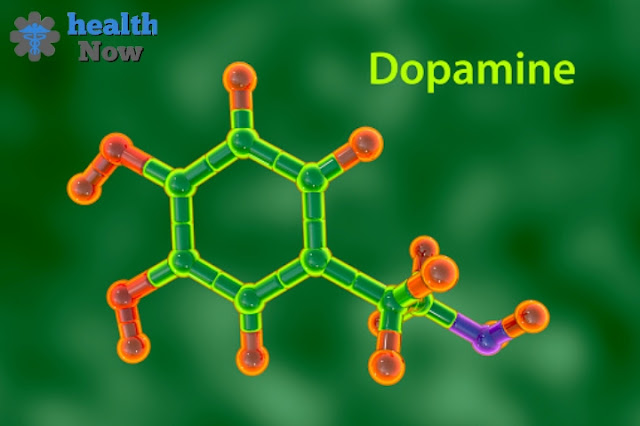What is the link between schizophrenia and dopamine?
Schizophrenia is a severe type of mental illness that affects a person's thoughts, perceptions, and behaviors, with researchers estimating as many as one percent of adults worldwide suffer from schizophrenia.
The exact cause of schizophrenia is still not clear, however, there are some ideas about different factors that might be involved, and one of those factors is dopamine, which is a type of chemical brain message called a neurotransmitter.
Experts believe that changes in dopamine activity may contribute to some symptoms of schizophrenia, as this is called the dopamine hypothesis of schizophrenia.
What is dopamine?
Dopamine is a type of neurotransmitter. Neurotransmitters are chemical messages in the brain that help nerve cells communicate with each other. Different neurotransmitters bind to different receptors on neurons. When a neurotransmitter binds to the correct receptor on a neuron, it stimulates that cell to take action. specific.
Different synapses are related to numerous physical and mental cycles in the body. For instance, dopamine is engaged with things like:
- Motivation and rewards.
- the movement.
- the mood.
- Attention, learning, and memory.
- sleep and dream.
Neurotransmitters travel along neural pathways, which are essentially long chains of neurons that help different parts of the brain to talk to each other. A few pathways that seem, by all accounts, to be related to the side effects of schizophrenia have been distinguished. These pathways use dopamine as their essential courier. The mesolimbic pathway and the middle cortical pathway.
What is the dopamine hypothesis for schizophrenia?
The dopamine speculation for schizophrenia has been around for quite a while, and as a matter of fact, it was first proposed during the 1960s, during which time specialists saw that an antipsychotic drug called chlorpromazine, which lessens dopamine action, really treated a few sorts of schizophrenia side effects.
Because of this observation, clinicians and researchers have hypothesized that increased levels of dopamine in the brain contributed to some of the symptoms of schizophrenia, but it's
a little more complicated than that.
Do high levels of dopamine cause schizophrenia?
High levels of dopamine do not cause symptoms of schizophrenia, as the role that dopamine plays in schizophrenia is more complex than this and involves specific dopamine activity.
Over time, researchers discovered evidence inconsistent with the original dopamine hypothesis for schizophrenia. For example, they found that some people with schizophrenia had typical levels of dopamine in their cerebrospinal fluid rather than elevated levels.
Furthermore, researchers have found that other antipsychotic drugs that do not block the effects of dopamine can still treat symptoms of schizophrenia, and some symptoms of schizophrenia may occur when certain areas of the brain have high levels of dopamine activity while other areas have lower levels of activity.
How does dopamine cause symptoms of schizophrenia?
Doctors still don't know exactly how dopamine relates to schizophrenia symptoms, but there are other theories associated with schizophrenia and dopamine, but what exactly is the significance in the first place?
In general, salient thoughts are how your brain attaches importance to something. For example, when you cross a street, cars are your most salient thoughts, and researchers are investigating whether increased levels of dopamine in the mesolimbic pathway might lead to salient problems.
When thoughts are dysfunctional, a person crossing the street may not pay much attention to cars because their brain tells them it's important to watch overhead birds, so this theory could help explain some of the observed symptoms of psychosis.
Symptoms of schizophrenia and the possibility of dopamine involvement
Dopamine-related schizophrenia symptoms
Dopamine is closely related to the positive symptoms of schizophrenia, with positive symptoms including:
- Hallucinations, involve realizing things that aren't there, such as hearing voices.
- Delusions are eply held beliefs that are not true and may not make sense to others.
- Unusual speech patterns. This can include things like stopping suddenly in the middle of talking about something, moving quickly from one topic to another, or making up words.
- Atypical body movements, which may include things like repeating the same movement over and over.
- Disturbed thinking. This is a disturbing way of thinking that can lead to confusion and unusual behavior.
Negative and cognitive symptoms.
- Disregard or indifference to everyday exercises.
- Limited emotional expression.
- Avoid social interactions.
- Trouble planning or following through on plans.
- Low energy levels.
People with schizophrenia can also have cognitive symptoms, which can include problems with things like:
- learning and memory.
- concentration.
- interest.
- Make décision.
A decrease in dopamine activity in certain areas of the brain may lead to negative and cognitive symptoms of schizophrenia, and the pathway thought to be affected by this is called the median cortical pathway.
The median cortical pathway is another of the main dopamine-related pathways in the brain, and messages sent along this pathway go to the prefrontal cortex, an area of the brain associated with processes such as:
- Make décision.
- memory.
- interest.
- motivation.
- emotional control.
Note that the above processes are those that are generally impacted by the negative and mental side effects of schizophrenia, and accordingly, it makes sense that diminished dopamine action along this pathway might add to these side effects.
Scientific research in dopamine and schizophrenia.
Researchers continue to investigate the role of dopamine in schizophrenia, and this is not only important in further understanding the causes of schizophrenia itself, but also in improving treatment.
Current antipsychotic medications are most effective for positive symptoms, and even then, some cases of schizophrenia can be resistant to these medications. Furthermore, antipsychotic medications can come with significant side effects, especially when used long-term.
So understanding how dopamine and other neurotransmitters affect schizophrenia could help researchers develop newer treatments that are generally more effective and focus on target neurotransmitters other than dopamine, as well as help address negative and cognitive symptoms and mitigate side effects.


